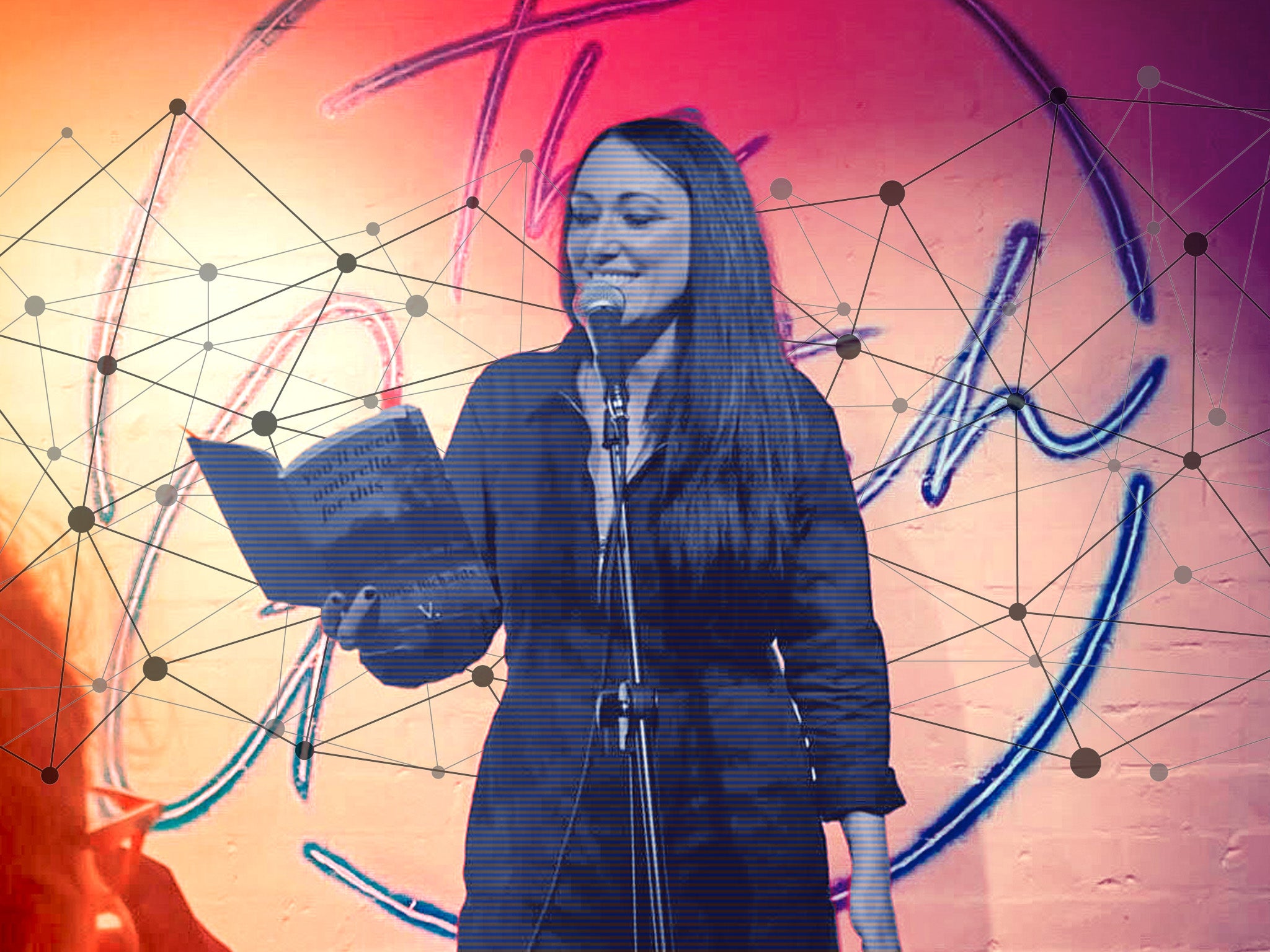The Independent's journalism is supported by our readers. When you purchase through links on our site, we may earn commission.
If Twitter is dying, there’s one thing I’ll miss
How do you stay connected? Social media is increasingly a chore, rather than a pleasure – but it’s still the method that helped me find my creative community, writes Victoria Richards


Your support helps us to tell the story
From reproductive rights to climate change to Big Tech, The Independent is on the ground when the story is developing. Whether it's investigating the financials of Elon Musk's pro-Trump PAC or producing our latest documentary, 'The A Word', which shines a light on the American women fighting for reproductive rights, we know how important it is to parse out the facts from the messaging.
At such a critical moment in US history, we need reporters on the ground. Your donation allows us to keep sending journalists to speak to both sides of the story.
The Independent is trusted by Americans across the entire political spectrum. And unlike many other quality news outlets, we choose not to lock Americans out of our reporting and analysis with paywalls. We believe quality journalism should be available to everyone, paid for by those who can afford it.
Your support makes all the difference.I’ll admit it: when I first heard that Twitter really had been bought out by Elon Musk (not to mention all the changes he made – for the worse – immediately, such as firing whole teams of people, including those responsible for content moderation and human rights) I breathed a weird sigh of... relief.
Relief to not be “on”, all the time. Relief to not have to display, in public, my thoughts and feelings. And the reason that it’s weird, to me, is because I have loved Twitter; for all its surreal gifs and “respectful memes” and knowing side-eye humour and self-congratulatory posts and humblebrags. I’ve loved it. I’ve added to it, too: at last glance I realised that in the 13 years I’ve been on the social media platform, I’ve sent an unbelievable 24,233 tweets.
Many of those have been work-related, flagrantly promoting my own writing, as well as those of the colleagues I so admire. Others have been slices of life; little vignettes about my children, or something strange or heart-warming I saw on the street (which always invokes the dark side of Twitter, too, in the shape of men with a football badge in their bio; the ones who simultaneously worship at the altar of “DHOTYA” – an entirely odious account set up almost specifically, seemingly, to undermine women and tell us that our bona fide anecdotes “didn’t happen”. That, I won’t miss one bit).
One tweet I sent almost without thinking, which ended up going viral, was a picture of a bench on my local high street: someone had doctored the memorial to pay tribute to the life (and death) of Saddam Hussein. My first reaction, when I saw that IRL? “I must take a photo and post it on Twitter.” And so it goes.
On reflection of its imminent demise, however (and I don’t know about you, but Twitter already seems different) I realised something else: losing Twitter inevitably means the loss of a community that has helped me develop into the person I am today. I wouldn’t be a poet, a short story writer or a (wannabe) novelist if it wasn’t for Twitter. Twitter, for all its faults, helped me find my literary community. What happens if it disappears?
Through Twitter, I’ve met close friends who come to visit me in London – one came as recently as last weekend. Through Twitter, I travel to Bristol every year for the “flash fiction festival”; a two-day extravaganza of workshops and creative writing and prompts and lectures and karaoke and wine. Through Twitter, I’ve heard about writing competitions: I’ve even won them. Through Twitter, I became part of a vibrant, lustrous group of people who are by nature drawn to isolation and yet make fabulous, wonderful friends – and through Twitter, I’ve become someone who performs.
I can barely believe I’m saying it: for I was the girl who would rather die (quite literally, die) than put her hand up in class; the girl who once bunked off school because there was going to be a “random pick” lecture session, where you had to come prepared to “debate” a topic of your choice. I was the one who wouldn’t go into the lunch hall if I didn’t have anyone to walk in and sit down with – I’d rather have missed out on food altogether. I was also the one who was too shy to go to meet anyone in the pub at university; not unless I had precise instructions for where they were sitting.
To keep up to speed with all the latest opinions and comment sign up to our free weekly Voices Dispatches newsletter by clicking here
Yet now, thanks to Twitter, I’ve made my own connections: I perform at poetry gigs and spoken word events, on stage and watched by a roomful of people. I’ve taken those connections and made them mine: I go away on weekend writing retreats, I have best friends who are writers who I now know I’ll love forever. At live events we connect face to face and we continue to develop those bonds that have made us... well, “us”. And we continue to make new ones.
It worries me when I see writers panicking on Twitter about how their books will get noticed without a platform to promote them on. I understand that fear. The literary community is a fierce and protective: we read each other’s work, we amplify each other’s voices, we spread the word. It’s OK if you’re a multimillion-pound celebrity name like David Walliams being given wall-to-wall coverage with your children’s books, but what if you’re not? How do you tell the world about your debut, when nobody knows who you are?
Social media is increasingly a chore, rather than a pleasure – but it’s still the method that helped me find my writing community. I’ll miss it dearly when it’s gone. In a way, I already do.
Our series – Generation Gap – explores how different generations stay connected. See the rest of the series here